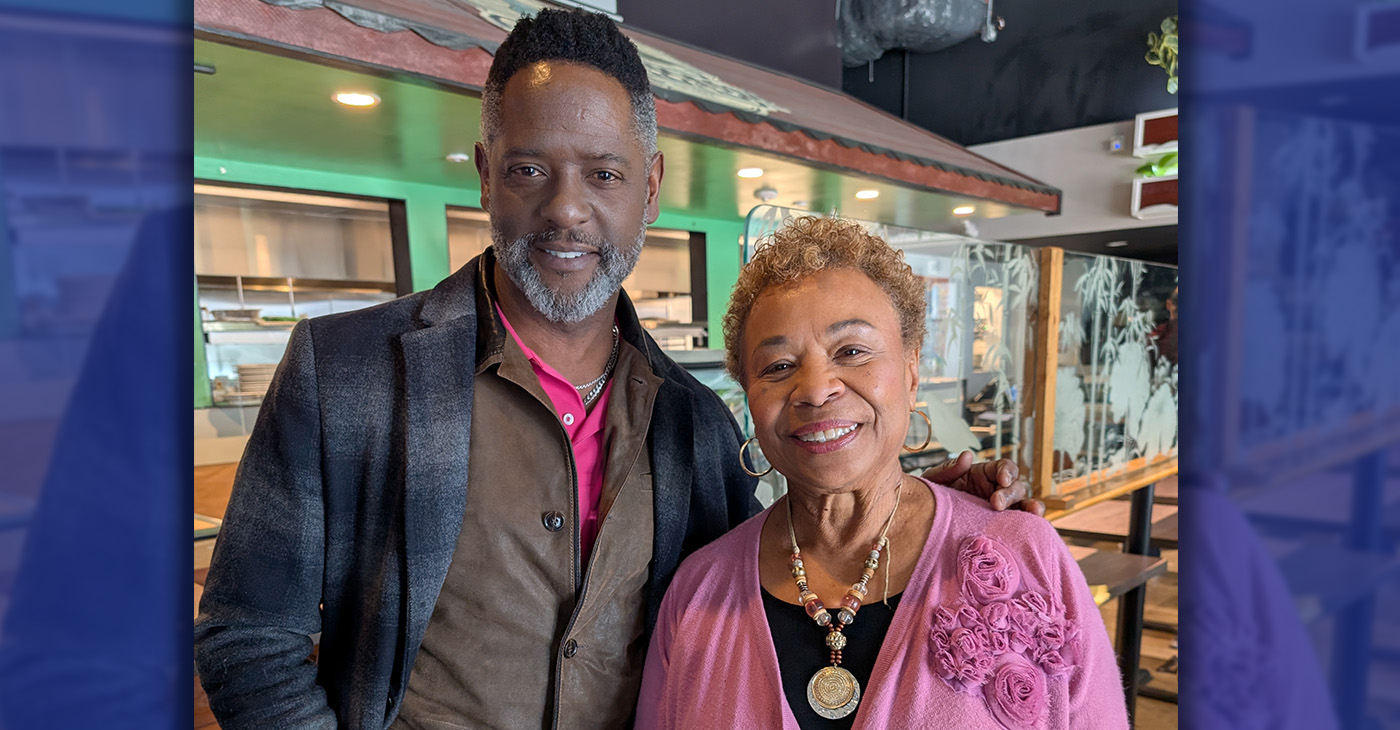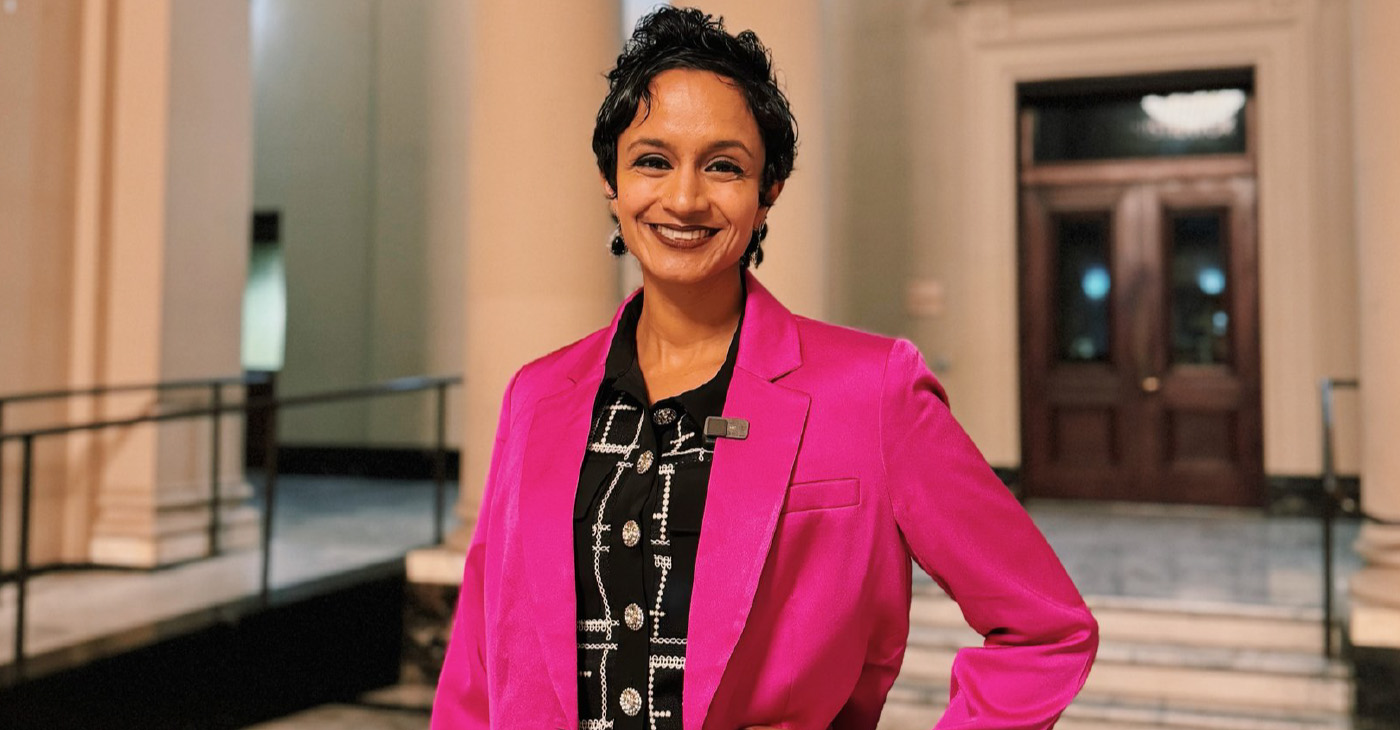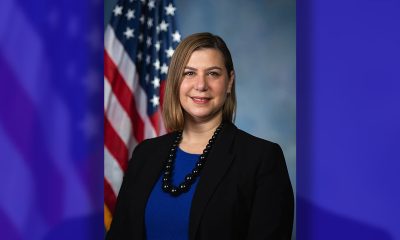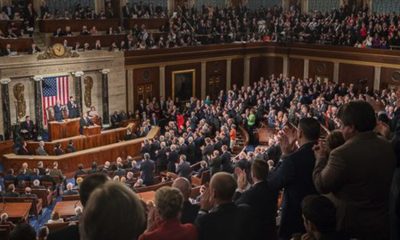Op-Ed
The Perils of a Poisonous Politics
By Jesse L. Jackson, Sr.
NNPA Columnist
By doubling down on his vile slur on President Obama’s love for his country, ex-New York City Mayor Rudi Giuliani created the media frenzy that he craved. He also set up an easy test of decency for Republican presidential contenders: Who has the sense to disavow Giuliani’s poison? Jeb Bush, Rand Paul and Marco Rubio passed the admittedly low bar; Governors Scott Walker and Bobby Jindal failed ignominiously: Governor Rick Perry pretzeled his way through it.
If Republicans wonder why 95 percent of African Americans and 70 percent of Latinos will likely end up voting for Democrats in 2016, they should look in the mirror. Virtually every African American will see this attack on President Obama as racist, something that would not be occur were Obama White.
Silence in the face of the attack will be seen as proof that the Republican race-based politics of division remains in force. In his decision to weaken the Voting Rights Act in Shelby v. Holder, Justice Roberts wrote that “this country has changed.” Giuliani’s insult ratifies the wisdom of Justice Ruth Bader Ginsberg’s ringing dissent, that while progress has been made, the Congress surely was right in deciding we still have far to go.
Giuliani’s rant echoes the new hysteria that Republicans are trying to stoke: that Obama is “withdrawing” from the world, and thereby weakening America. A parade of horrors – Russia in Ukraine, ISIS in Syria and Iraq, negotiations over nukes with Iran, terrorist violence in Paris – is summoned up and blamed on the president.
Recently, Obama made the simple and common sense observation that we are not at war with Islam, but with terrorist extremists who want to hijack the religion for their own ends. His statement was similar to that repeated frequently by George W. Bush when he was president. Any future president from either party will make similar statements – both to reflect reality and to keep the fear-mongers from fanning hatred here at home. Yet the president’s comments sparked hysterical comments from across the right-wing noise machine as if common sense were somehow heresy.
This clamor is feeding a mindless war fever. Do we want to have an armed confrontation with Russia over Ukraine? Not really, the macho hawks basically want to fight to the last Ukrainian. Do we want to put troops back into Iraq? Not really, although as President Obama has escalated the U.S. response to ISIS, the armchair hawks have moved to more muscular positions, now even mumbling about “boots on the ground.” We are fighting wars in Afghanistan, providing troops and arms and bombs against ISIS, running drone attacks in nearly a dozen countries, dispatching special forces to 120 countries. And somehow this is scorned as withdrawal from the world.
Missing in the hysteria and the vile attacks on patriotism is a sensible policy debate – and a sensible reckoning of how we got to where we are. The reality is that excessive belief in military force has done more than anything to cause this mess. The catastrophic invasion of Iraq is the worst foreign policy debacle since Vietnam. The decision not simply to go after Bin Laden and al Qaeda, but to wage a counterinsurgency war in Afghanistan and “rebuild” that nation has led to the longest war in our history that shows no sign of ending.
The “humanitarian intervention” in Libya has left chaos and violence in its wake. The US invasion of Iraq turned the country over to Shiite rule, ironically empowering Iran. ISIS comes out of the Sunni reaction to that reality. Meanwhile we’ve only begun to pay the $3 trillion tab for Bush’s Iraq War, even as our own roads, rail, sewage and water systems grow ever more dangerous for lack of investment.
Those who mindlessly call the president weak, impugn his patriotism, and accuse him of withdrawing from the world ought to be called to account. Enough with the rhetoric, the posturing, and the poison. What is the policy that they want? Let us hear them explain how they will drive a confrontation with Russia in Ukraine, while fighting in Afghanistan, Iraq, Syria, Yemen and elsewhere.
The only way Americans will accept this nonsense is if they are scared out of their wits. Sadly, that seems to be the intent of the fear mongers, who need to be challenged before they frighten us into yet another costly debacle.
Jesse L. Jackson, Sr. is founder and president of the Chicago-based Rainbow PUSH Coalition. You can keep up with his work at www.rainbowpush.org.
###
Activism
Actor, Philanthropist Blair Underwood Visits Bay Area, Kicks Off Literacy Program in ‘New Oakland’ Initiative
These community activations were coordinated with the San Francisco-based non-profit program “Room to Read.” Ray said he is also donating his time to read and take pictures with students to encourage their engagement and to inspire them to read more. The inspirational book “Clifford Ray Saves the Day” highlights Clifford Ray’s true story of saving a dolphin.

By Paul Cobb
New Oakland Series
Opinion Part 3
The Post mentioned three weeks ago that a number of our local luminaries were coming together to support the “New Oakland” movement. As this current national administration continues to eliminate our “legacy” institutional policies and programs left and right, most communities find themselves beyond “frozen” in fear.
Well, esteemed actor, long-time Bay Area supporter, and philanthropist Blair Underwood returned to Oakland this week to speak with city leaders, community trust agents, students, the Oakland Post, and local celebrities alike to continue his “New Oakland” initiative.
This week, he kicked off his “Guess Who’s Coming to Read” literacy program in some of Oakland’s middle schools. Clifford Ray, who played the center position of the 1975 World Champion Golden State Warriors, donated close to 1,000 books. Ray’s fellow teammate Charles “The Hopper” Dudley also gave Converse sneakers to students.
These community activations were coordinated with the San Francisco-based non-profit program “Room to Read.” Ray said he is also donating his time to read and take pictures with students to encourage their engagement and to inspire them to read more. The inspirational book “Clifford Ray Saves the Day” highlights Clifford Ray’s true story of saving a dolphin.
Underwood also spent quality time with the Oakland Ballers ownership group and visited the amazing Raimondi Park West Oakland community revitalization site. In the 1996 TV film Soul of the Game, Underwood played the role of the legendary first Black Major League Baseball player Jackie Robinson and commended the Ballers owners.
“This group of sports enthusiasts/ philanthropists needs to be applauded for their human capital investment and their financial capital investment,” Underwood said. “Truly putting their money and passion to work,” Underwood said.
Underwood was also inspired by mayoral candidate Barbara Lee’s open-minded invitation to bring public-private partnership opportunities to Oakland.
Underwood said he wants to “reinforce the importance of ‘collaborative activism’ among those most marginalized by non-empathic leadership. We must ‘act out’ our discomfort with passionate intentions to create healthy change.”
Activism
Councilmembers Ramachandran, Kaplan, Unger Identify Funds to Save Oakland Fire Stations
Our budget crisis – one of the worst in Oakland’s history – is compounded by the fact that people do not feel safe coming to Oakland due to our public safety crisis. By investing in our fundamental public safety resources today, we can send a signal to the world that Oakland is open for business. We have such a rich and vibrant culture, arts, and food scene that is worth celebrating – but we can only showcase this if we are able to keep our neighborhoods safe. Having fully functioning fire stations are absolutely essential to these efforts.

By Janani Ramachandran
There is no greater concern to the people of Oakland today than public safety. Fire stations are the bread and butter of essential city services – and every day that we have stations shuttered, we imperil the lives of our community members. In response to widespread outcry over the current and planned closure of stations, myself, along with Councilmembers Kaplan and Unger, have painstakingly worked to identify millions of dollars of new funding to save our stations. The legislation we introduced on Thursday, February 13th, will amend our budget to prevent the closure of four fire stations that are currently on the chopping block due to our budget crisis and will re-open two closed stations that have already been closed – Station 25 and 28 – in the near future. The resolution that will provide the funding to keep our stations open will go before the full City Council for a vote at our meeting on Tuesday, March 4th at 3:30 PM – and we invite you to join us at City Hall to share your perspective on the topic.
Our budget crisis – one of the worst in Oakland’s history – is compounded by the fact that people do not feel safe coming to Oakland due to our public safety crisis. By investing in our fundamental public safety resources today, we can send a signal to the world that Oakland is open for business. We have such a rich and vibrant culture, arts, and food scene that is worth celebrating – but we can only showcase this if we are able to keep our neighborhoods safe. Having fully functioning fire stations are absolutely essential to these efforts.
With the devastating Los Angeles fire at the top of people’s minds, terrible memories of Oakland’s own wildfires are re-surfacing from the 1991 Oakland Hills Firestorm to the Keller fire just a few months ago – and how essential fire stations are to mitigating these catastrophes. But in Oakland, our fire stations don’t just fight wildfires – they also provide emergency medical services to our most vulnerable constituents, put out structural fires and encampment fires, and much more.
We recognize that there are a number of competing interests and important initiatives fighting for sparse City resources. But from my perspective, core safety services are the most pivotal functions that a City must spend its resources on – especially given the outcry we have heard around fire stations.
The fight to save our stations is not over. The resolution we introduced is a critical first step, and there are hurdles to overcome. If you support keeping our fire stations open, we invite you to be a part of the solution by making your voice heard at the March 4th City Council meeting at 3:30 pm.
Activism
NNPA Launches National Public Education and Selective Buying Campaign
“We are the trusted voice of Black America, and we will not be silent or nonresponsive to the rapid rise of renewed Jim Crow racist policies in corporate America,” stated NNPA Chairman Bobby R. Henry Sr. “The Black Press of America continues to remain on the frontline keeping our families and communities informed and engaged on all the issues that impact our quality of life.”

Washington, DC: The National Newspaper Publishers Association (NNPA), representing the Black Press of America, has announced the planning and implementation of a national public education and selective buying campaign across the nation in direct response to those corporate entities that have dismantled their respective Diversity, Equity and Inclusion (DEI) commitments, programs and staffing. NNPA Chairman Emeritus Danny Bakewell Sr. explained, “Now is the time for the Black Press of America once again to emphatically speak and publish truth to power.”
“We are the trusted voice of Black America, and we will not be silent or nonresponsive to the rapid rise of renewed Jim Crow racist policies in corporate America,” stated NNPA Chairman Bobby R. Henry Sr. “The Black Press of America continues to remain on the frontline keeping our families and communities informed and engaged on all the issues that impact our quality of life.”
At a recent convening of NNPA member publishers and editors, a united resolve was reached that each member publication of the NNPA will begin a national public education campaign coupled with the release of research data on those American companies that are engaging in efforts to sanction racial injustice, inequitable polices, divisive leadership, and economic apartheid in America.
“We note forthrightly that Black Americans spend $2 trillion dollars annually as consumers of products and services throughout the United States,” NNPA President and CEO Dr. Benjamin F. Chavis Jr. emphasized. “We now must evaluate and realign to question why we continue to spend our money with companies that do not respect us,” Chavis continued. “This now must come to an end. These contradictions will not go unchallenged by 50 million Black Americans who have struggled for centuries to ensure equality, fairness and inclusion in our nation’s democracy.”
A selective buying campaign involves exercising the right to select what we spend our money on and who we spend our money with. We are starting with targeting TARGET.
The following are some of the major American companies that have publicly retreated from Diversity, Equity and Inclusion:
- TARGET
- Lowe’s
- John Deer
- Walmart
- Meta
- Tractor Supply
- Amazon
- McDonald’s
- Ford
-

 Activism4 weeks ago
Activism4 weeks agoUndocumented Workers Are Struggling to Feed Themselves. Slashed Budgets and New Immigration Policies Bring Fresh Challenges
-

 Activism4 weeks ago
Activism4 weeks agoOakland Post: Week of March 5 – 11, 2025
-

 Activism1 week ago
Activism1 week agoWe Fought on Opposite Sides of the Sheng Thao Recall. Here’s Why We’re Uniting Behind Barbara Lee for Oakland Mayor
-

 #NNPA BlackPress2 weeks ago
#NNPA BlackPress2 weeks agoRev. Dr. Jamal Bryant’s Black Church Target Boycott Mobilizes 150,000
-

 Activism2 weeks ago
Activism2 weeks agoSan Francisco Is Investing Millions to Address Food Insecurity. Is Oakland Doing the Same?
-

 #NNPA BlackPress4 weeks ago
#NNPA BlackPress4 weeks agoTrump Moves to Dismantle Education Department
-

 #NNPA BlackPress4 weeks ago
#NNPA BlackPress4 weeks agoFighting to Keep Blackness
-

 #NNPA BlackPress4 weeks ago
#NNPA BlackPress4 weeks agoFederal Firing Leaves Gaping Holes



























































